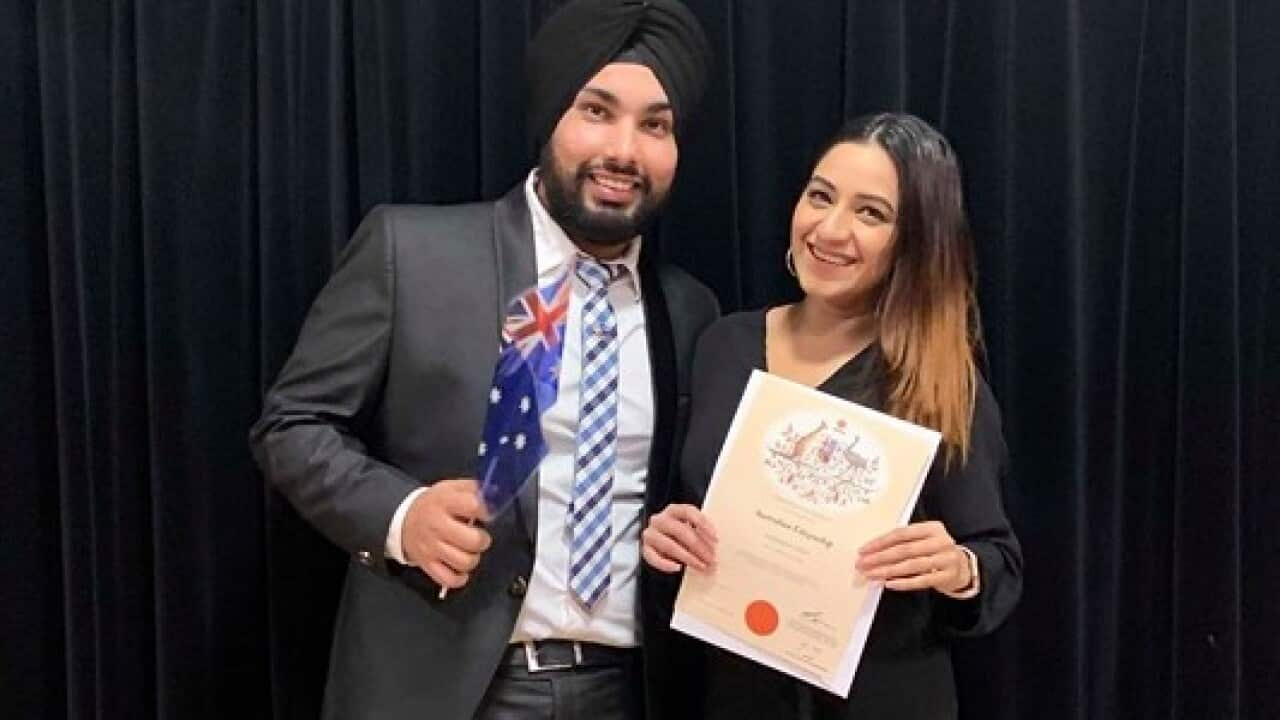Hundreds of thousands of migrants are waiting over sixteen months to become Australian citizens despite a massive decline in the number of citizenship applications last year.
Of the 221,000 people with pending applications for Australian citizenship, Indian migrants lead the pack with nearly 30,000 applications, followed by those from the United Kingdom (27,000) and China (17,000). Prospective citizens now face an average waiting time of 493 days to make their pledge of allegiance to Australia, up from 167 days in 2012-13.
Most of that waiting period comprises of time from when an application is lodged to its approval or denial by the Department. Currently, the average time for that step is 410 days, which was 63 days in 2012-13. The next and final part of the process is attending a citizenship ceremony organised by an applicant's local council. The figures provided by the Department of Home Affairs in response to questions from Labor MP Julian Hill reveal that while the number of citizenship applications dropped by over 100,000 last year, the queue of those waiting to pledge allegiance to Australia could only be cut by 23,350 during this time.
The figures provided by the Department of Home Affairs in response to questions from Labor MP Julian Hill reveal that while the number of citizenship applications dropped by over 100,000 last year, the queue of those waiting to pledge allegiance to Australia could only be cut by 23,350 during this time.

The average number of days from lodging a citizenship application to receiving Australian citizenship. Source: Department of Home Affairs Source: SBS Punjabi
Shadow Minister for Home Affairs Kristina Keneally said the number of people caught up in the delays was almost equal to the population of two federal electorates.
“Scott Morrison says ‘if you have a go, you get a go’ but these citizenship processing blowouts are proof he doesn’t care about people waiting for their citizenship applications to be processed,” Ms Keneally said.
“The ongoing blowouts in citizenship application processing under the third term Morrison Government are cruel, callous and are preventing people from pledging commitment to Australia,” continued the shadow minister and senator.
How many people are there who have lived and worked in Australia, met the requirements, and made their citizenship application that were then denied the opportunity to vote at this year’s election?
The citizenship backlog climbed to a record 245,000 at the end of 2017-18 in the wake of the proposed citizenship changes announced in April 2017 that the government subsequently abandoned. The Department attributed the huge backlog, besides other things, to an increase in the number of complex applications. However, the Auditor General found in February this year that the increase was largely in less complex applications from skilled migrants.
However, the Auditor General found in February this year that the increase was largely in less complex applications from skilled migrants.

The number of citizenship applications at hand at the end of each financial year. Source: Department of Home Affairs Source: SBS Punjabi
“The increase has been in less complex applications from the skilled migration stream, which increased by 41 per cent over the four years. Applications from the humanitarian migration stream, which are relatively more complex to process, decreased by nine per cent over the four years,” the Auditor General said in a report.
The National Audit Office also said the applications for citizenship by conferral were not processed in a “resource-efficient” manner and that there were significant periods of "inactivity" between the time of lodging application and making a decision.
Citizenship approvals rose to 145,000 in 2018-19 after sinking to a 15-year low of 80,600 the year before. Immigration and Citizenship Minister David Coleman said the improved number was due to increasing efficiency and resources in citizenship application processing.
Immigration and Citizenship Minister David Coleman said the improved number was due to increasing efficiency and resources in citizenship application processing.

The top-ten nationalities of citizenship applicants awaiting an outcome. Source: Department of Home Affiars Source: Department of Home Affairs
“We have invested $9 million into our systems and staff, established a taskforce to focus on complex cases, and increased the number of citizenship appointments available for applicants to attend interviews and sit the citizenship test,” Mr Coleman said.
According to the Department’s current published global processing time, most citizenship applications are processed within 22 months.



